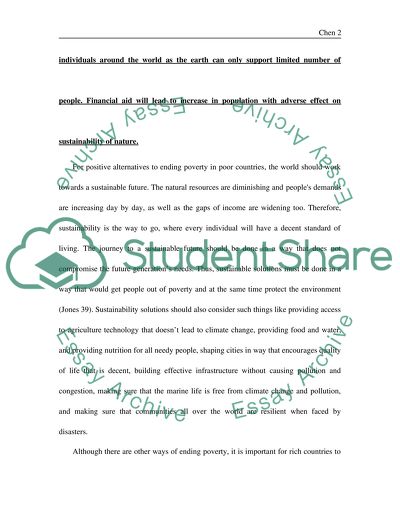Will financially aid helping poor people lead to a sustainable future Essay. Retrieved from https://studentshare.org/miscellaneous/1668143-will-financially-aid-helping-poor-people-lead-to-a-sustainable-future
Will Financially Aid Helping Poor People Lead to a Sustainable Future Essay. https://studentshare.org/miscellaneous/1668143-will-financially-aid-helping-poor-people-lead-to-a-sustainable-future.


